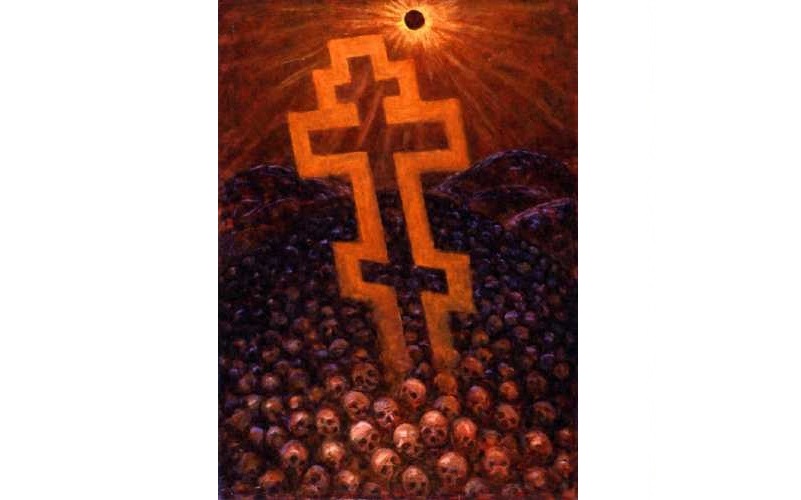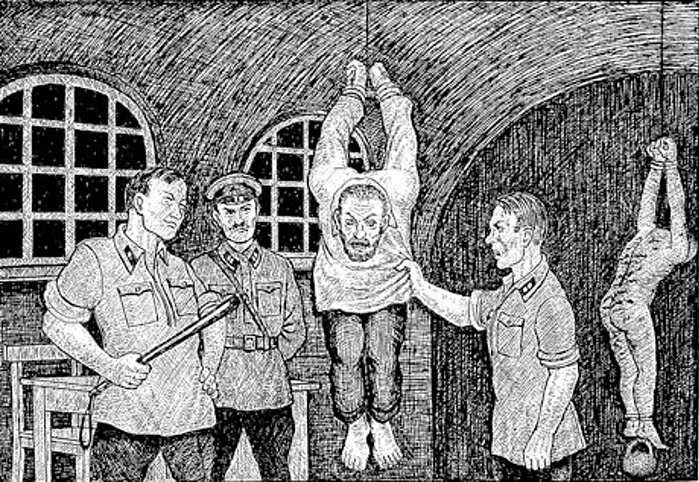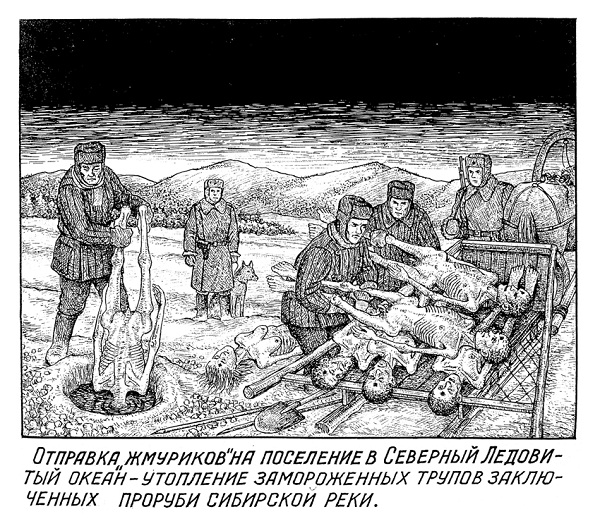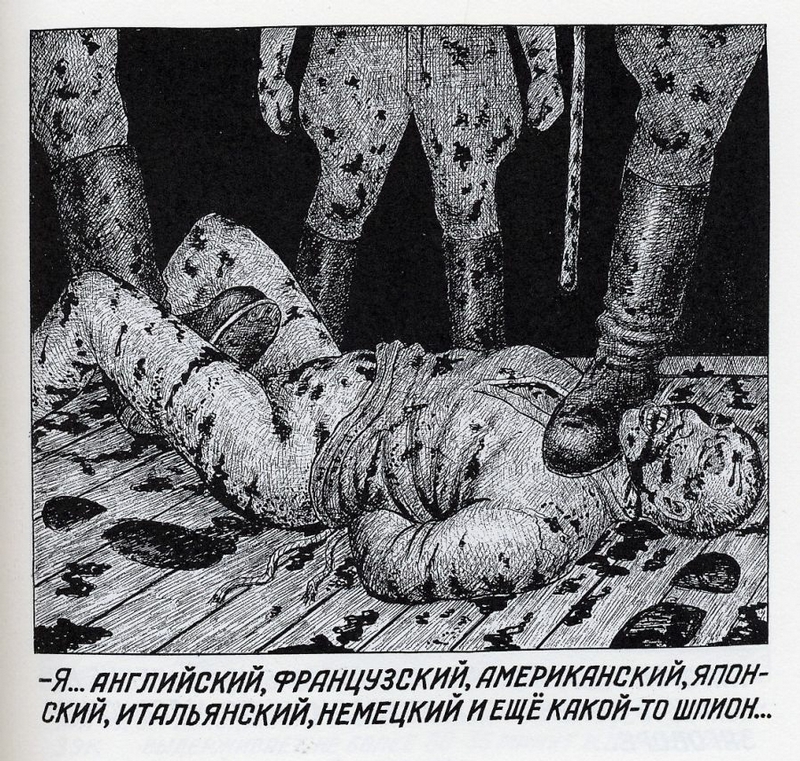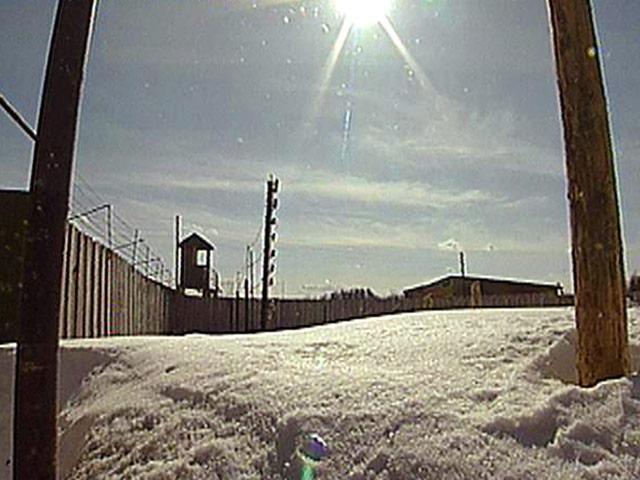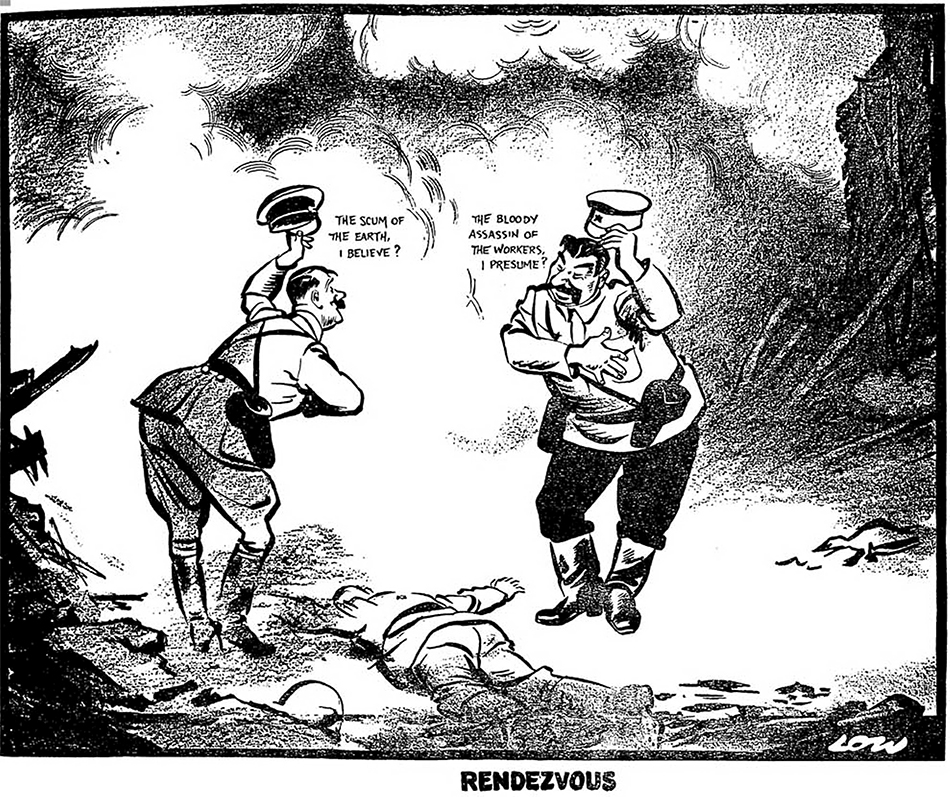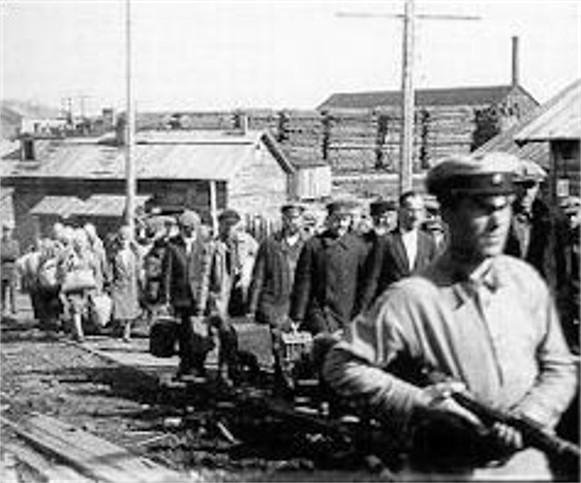Those who study the post-Soviet world and especially its non-Russian parts are often struck by the fact that many who do so show an understanding or even sympathetic deference to Russia and Russian feelings while ignoring those of the peoples of living in countries near Russia and a tendency to forget or downplay the crimes of communism.
There are many reasons for this pattern, of course; but two articles provide an important part of the answer for approaches that have distorted the world’s understanding of what is going on and has been going on in the former Soviet bloc and allowed some of the crimes of the past to continue into the present.
In an article on the Euromaidan Press portal, Fabio Belafatti, an Italian specialist on Central Asia who now teaches at the University of Vilnius and earlier worked in Latvia and Tajikistan, argues that such sympathy and deference to Russia reflects a rebirth of Orientalism.
He says “pro-Russian commentators in many Western countries have been portraying the Ukrainian events using a mix of stereotypes that scarily resemble the rhetoric once typical of racist and imperialist ways of thinking [and] as a result … [they along with] Georgians, Moldovans, Poles, Lithuanians, Latvians, and Estonians have fallen victim to a new form of Orientalism.”
That term was introduced and popularized by Edward W. Said in his 1978 book of that title, Belafatti continues, in which the Columbia University scholar argued that “Western commentators consistently looked (and look) at the Orient as an entity incapable of evolving, stuck in an endless past of decadence and backwardness.”
Said, Belafatti points out, argued that those who follow this approach “constantly portray” the East “as an invariably passive subject, unable and unworthy of being an active subject in its own way,” with the West in contrast being presented as “the one and only entity worth the dignity of an active subject.”
“The Ukrainian crisis is revealing the existence of a strikingly similar prejudice” both among Moscow commentators and pro-Russian ones in the West, the Vilnius scholar argues. There are two basic kinds of pro-Russian narratives, he suggests:
- One argues that Russia should be excused for its actions because the West has done something similar or worse elsewhere.
- The other, which Belafatti calls the geopolitical, “defends Russia’s actions by accusing the West of ‘interfering’ in the business of a region where it does not have any right to operate, or expresses understanding for Moscow’s preoccupation about the enlargement of NATO, the erosion of its sphere of influence, the actions of EU and NATO in its ‘near abroad,’ and so on.”
It is around this second theme that Orientalism is playing a role. Indeed, Belafatti suggests, “practically all those who defend Russia in this debate fell into this trap [with] many of the articles [accusing] the West of “causing” the Ukrainian chaos by “provoking” Russia in its strategic interests and wounding its pride of great power.”
Such an argument demonstrates, the Vilnius specialist says that “the authors write from a distorted, hierarchical and, ultimately, orientalist (if not outright racist) perspective on the small countries of Eastern Europe,” one that takes as a given that Russia has “inalienable” rights to run this region and that “Eastern Europe [is] nothing but a tool to compensate Russia’s unresolved inferiority complexes.”
“The idea that Russian actions are legitimate reactions to the interference of “outsiders” in a region seen as “Russian” is nothing but a version 2.0 of the same imperialist mentality with which Europeans empires split the Middle East. This is all the more surprising as it often comes from people who embrace ostensibly anti-imperialist positions in any other context,” Belafatti observes.
And this perspective spawns other “appalling ideas” such as the one that “Russia is right in interfering in Ukraine because it already ‘had to give up’ the Baltic States in the past and ‘the West’ really shouldn’t ‘deprive’ it of other countries,” regardless of what the peoples of these countries have experienced in the past and what they want for the future.
“For far too many Western experts what really matters is the Russian feelings,” Belafatti says. “What Ukrainians, Poles, Moldovans, Balts, Georgians, Armenians may think, is much less significant, because it’s just the feeling of “others,” subaltern subjects, unworthy of the dignity of actors, at best reacting victims of an orientalist interpretation of history that Westerners apply far too often to their Eastern European neighbors.”
“Pro-Russian commentators’ orientalist thinking emerges in the way they portray Ukraine as a country incapable of action on its own initiative. They invariably see Eastern European countries as objects manipulated by the West. [And] Former communist countries are seen as victims of an inclusion in Western security structures carried out against their will.”
“This is of course nonsense: the integration of Eastern Europe in Euro-Atlantic security structures happened” because the East Europeans campaigned for it, often in ways Western actors have often found far too pressing.” To write otherwise is “not just post-Soviet nostalgic thinking: it is outright racism” because it’s actually Russia who should be held responsible for destabilizing the region with its opposition to the desires” of its neighbors.”
“It is therefore racist to think that nobody east of the EU may want an order of things in which Russia doesn’t dominate, as if we “Westerners” were the only ones worth of, or capable of fighting for, things like rule of law, human rights and so on.” The peoples of the region are actors and should be recognized as such.
The second article by Christopher Szabo, a Hungarian commentator, explicitly asks “Why are we so understanding toward the crimes of Communism?” He suggests that there are complex reasons for that:
- Part of the reason is that what the West likes to call “the collapse of Communism” in fact was largely peaceful because those who had been in power became “the new political elite and the wealthiest stratum of society.” In short, the nomenklatura took advantage of the changes with the lesson being “’crime pays.’”
- But another part and one that helps explain “the lack of justice for victims of communism” is “Western apathy toward [its] victims.” It is something “hard to understand for those … whose families were affected and very hurtful” and which is the product of the spread of “cultural Marxism and simple ignorance.”
Few in the West today talk about the crimes of communism, even when information about their horrors have become available and even when these horrors continue in places where communists are still in power, Szabo points out.
One of these is mass rape. The Red Army raped from three to four million East European women at the end of World War II. Today, the Chinese communist forces engage in similar actions in Tibet. “One cannot help wondering,” Szabo says, “where the feminists are in all this” and what can be done.
Obviously, more attention must be given to the crimes of communism via memorials and mass media. Unfortunately, the trend is going in the other direction at the present time. Thus, the Hungarian journalist writes, “there are some memorials to the victims of the GULAG in Ukraine and Russia, but since the rise of Vladimir Putin, some have been taken down and some have been ‘re-scripted’ to whitewash history.”
All too often, he says, “the liberal West and Putin’s regime are in agreement: all memory of communism’s crimes must be carefully edited out of all books, films and other media and quickly forgotten.” That needs to change because many of these crimes are continued or at least continue to cast a shadow on the world.
Related:
- Why be concerned about the Memorial to the Victims of Communism controversy in Canada?
- Book details Kremlin’s influence networks in France
- Fancy a frack? How the UK Greens got into bed with Putin
- Moscow creating ‘new Comintern’ spy network in Europe, Prague says
- Putin, in reaching out to the far right in Europe, has not forgotten the left
- Homophobic Stalinist reiterates Russian propaganda for French documentary
- Moscow closed GULAG museum because it doesn’t want a ‘territory of freedom’
- Putin’s Russia well on its way to ‘criminal neo-totalitarianism’ with a ‘neo-terror’ and a ‘neo-GULAG,’ Pastukhov says
- 60 years ago this week, Ukrainians rose up against the Soviet GULAG at Kengir
- ‘What can Ukraine expect from the West now?’ — former GULAG inmate asks bitterly
- Reflections on Communist Crime and Punishment in the light of the Ukrainian Revolution of Dignity
- Collective Farms, Common Graves: A Famine Lament




